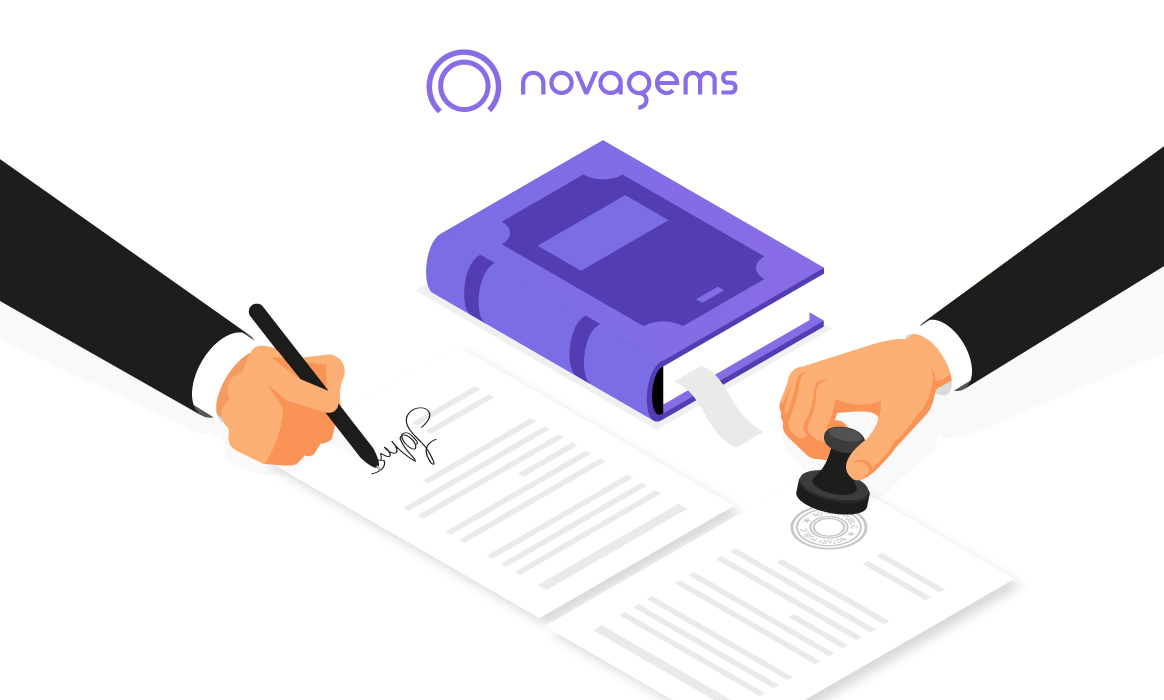Canadian Laws Security Guards Need To Know About
Wed, Dec 7, 2022
Read in 8 minutes
The lives of security guards are anything but easy. As a professional security guard, you never know the situation you must handle and manage. But that is not all that a security guard needs to worry about because there are many legal obligations for security guards in Canada. Unfortunately, the law is not something that comes easily to people. So before you get a job as a security guard officer in Canada, you must familiarize yourself with Canadian security guard laws. Or ask the necessary questions like can private security carry guns in Canada? Can a private security guard make an arrest?

Security guards are hired by private individuals, companies, or organizations to protect people and property, such as in a shopping mall or apartment building. They are not part of the local police force and have more limited powers. However, they may have the ability to
- ask someone to leave or ban them from private property,
- make an arrest for specific offenses, or
- detain and search someone in certain situations.
So before becoming a security guard, what Canadian laws security guards need to know about?
Asking You To Leave A Private Property
Under the Trespass To Property Act, a security guard can ask you to leave the private property without giving any reason for it. If you refuse to leave, then the security guard can arrest you as well.
Areas Under Which You Can Be Arrested
- If you commit a criminal offense on or against the private property
- If you are seen being chased by someone who has the authority to arrest you.
Security guards are forbidden from using excessive force and, in most cases, are not authorized to possess or utilize a firearm. While security guards may be equipped with a baton and handcuffs, the baton can only be used for defensive purposes. The security company employing them must hold a license, and the security guards must undergo proper training.
In Canada, security guards are licensed professionals who are hired to protect people and property. They have a range of responsibilities and limitations that are outlined in provincial and territorial legislation.
Of course, it is not easy to wrap your head around these laws, but you have no other option in this case. If you want to be the best security guard or provide the best security guard services, you need to familiarize yourself with these laws. So continue reading to learn more about the Canadian laws you need to know as a security guard in the country.
As of September 2023, there has been a new rule. Physical license cards were no longer issued but they could only be issued digitally. However, the security guards must carry a hard copy or digital version of this license at all times and be prepared to show it upon request.
1) Security Services Act
The Security Services Act is primarily concerned with different aspects of the job description of a security guard in Canada.
As one of the country’s most crucial security acts, the Security Services Act overshadows many other laws. Besides, the act has different provisions for security guards and security guard companies, and businesses.
The Security Services Act specifies that every security guard officer must have a valid professional license to perform any security-related task. The act gives the registrar to decide if the security tasks you are engaging in are incidental or a primary duty of your job as a security guard. Additionally, you must apply for your security guard license from the registrar.
The Security Services Act further specifies that you must be an ordinary Canadian resident to renew your license unless you are exempt by regulation. But remember, renewing your licenses is mandatory, and you will need to pay an additional fee for renewal.
2) Criminal Code of Canada
Another important law that Canadian security guards need to familiarize themselves with is the Criminal Code of Canada. The act deals with the specifics of criminal activities and allows one to make an arrest when finding anyone guilty of any criminal offenses. Section 494 of the Criminal Code of Canada specifies that even members of the general public can make arrests.
Security guards are different from conventional peacekeepers, and the act does not recognize them as peacekeepers. So, their authority to make an arrest is just as limited as any other member of the general public. As long as the security guards have the necessary evidence and appropriate training even, they can arrest individuals for de-escalating any given situation.
Regarding the breach of peace, there is no specific Criminal Code for breaching the peace. However, section 30 of the Criminal Code of Canada provides one with authority to anyone, including a public member, to prevent or detain anyone trying to breach the peace. But this section is more like a preventive remedy to safeguard peace which means you must have a valid reason to detain someone.
3) Firearms Act
The final necessary law for security guards in Canada is the Firearms Act. As you might have already guessed, not everyone in Canada can carry firearms. One of many qualities that set Canada apart from its neighbors. The most commonly asked question is “can security guards carry guns in Canada?” Security guards can carry the following to assist and protect the area they are patrolling -
- A Banton
- Handcuffs and
- Firearms if they comply with the a valid firearms licence
so I hope this answers your question.
The Firearms Act deals with the authorization to move, import, and export firearms.
However, the Firearms Act has a couple of exceptions that deal with businesses and services where firearms are a must. Security guards in Canada can only carry and use a firearm if their employer issues the same. Besides, the security guard must have a valid firearms license for carrying and using the weapon.
Every security guard on duty must carry their firearms license and present the same upon request.
4) Privacy Laws
Security guards must also be aware of privacy laws in Canada, including the federal Personal Information Protection and Electronic Documents Act (PIPEDA) and provincial privacy laws. These laws govern the collection, use, and disclosure of personal information, including video surveillance footage and other information collected by security guards.
It’s important for security guards to stay up-to-date on changes to the laws and regulations that apply to their work. They should also receive regular training and education to ensure they are equipped to perform their duties safely and effectively.
Other than these acts, there are some other powers that a security guard have are-
- Conduct searches of people and their belongings, but only with their consent or with a warrant
- Use reasonable force to protect themselves, others, or property from harm, but only as a last resort and in proportion to the threat
- Monitor CCTV cameras and other security systems to detect and prevent crime
- Respond to emergencies, such as fires or medical emergencies
- Provide information and assistance to the public
Keep in mind that a security guard is not a police officer. So he cannot exercise the special powers a trained police officer has. The first and foremost duty of a security guard is to observe the premise. Should any threat arise, only then he can take reasonable actions.
At the same time, there are certain things a security guard is forbidden to do so as well. And if he fails to follow those guidelines, he himself is liable to be arrested as well. If you are a security guard keep in mind the following points-
- Carry firearms or other prohibited weapons, unless they have received the necessary training and certification
- Use excessive force or violence against anyone, even if they are committing a crime
- Discriminate against people based on their race, gender, age, religion, or other personal characteristics
- Violate people’s privacy rights or search them without their consent or a warrant
- Access or disclose confidential information, unless it is necessary for their job duties and they have received proper authorization
It’s important to note that the specific duties and limitations of security guards can vary depending on their employer, the location, and the nature of the job.
But what shall a security guard do when there is a breach of security? After all the security guard has been hired to prevent the situation from accelerating. They can prevent the situation from accelerating.
When dealing with a breach of peace incident, a security officer should take the following actions:
-
Assess the situation: The security officer should quickly assess the situation to determine the level of danger and whether or not the situation is escalating. This will help them determine the appropriate course of action. Timely action will prevent a bigger accident from happening.
-
Communicate: The security officer should communicate with the parties involved in the incident, using calm and clear language. They should try to defuse the situation and encourage cooperation. If the communication is not clear, this may create confusion and agitate the parties involved.
-
Gather information: The security officer should gather as much information as possible about the incident, including the parties involved and any witnesses. This information will be important in making a report and may be helpful in preventing future incidents. This information can later also be given to police officers.
-
Call for backup: If the situation is escalating or the security officer feels that they cannot handle the situation alone, they should call for backup from other security officers or the police. The security guard might feel overpowered in certain situations as well, so it’s in his best interest to think clearly.
-
Maintain control: The security officer should maintain control of the situation and ensure that everyone involved remains safe. They should be assertive but avoid using excessive force. As they are not allowed to use excessive force, they need to maintain a fine line between the necessary force and going over the top.
-
Report the incident: The security officer should make a report of the incident, including any actions taken, and submit it to their supervisor or the appropriate authority. The report should be factual, objective, and include any witness statements or evidence. The report can also be used by police officers should their investigation is required.
Summing UpFailing to adhere to these regulations will attract penalties and even jail time in some adverse and severe cases. Also, the security guard must prevent using the firearm for as long as possible. Unjustified firearm use can attract fines and jail time for security guards and their employers.
Get a Free Trial
Sign up For Newsletter
Latest Blog Posts
Get Started
Start being productive & grow your business
with Novagems




